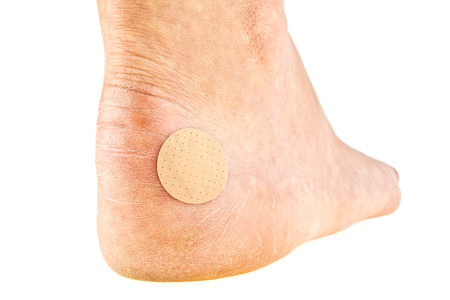Diabetic? You Can’t Ignore Foot Ulcers!
Diabetic foot ulcers can start out in an ordinary way. It might be a new pair of shoes or taking an extra-long walk, and the next thing you know, you have a small blister on your foot. But the real problem begins when you lose feeling in your feet. And if you continue walking instead of changing shoes or just stopping, a small sore can morph into a more serious wound. Today, Dr. William Buffone of North Fork Podiatry/Three Village Podiatry is sharing information regarding diabetic foot ulcers and how to prevent them.
Up to 10 percent of people who are living with diabetes will end up with a foot ulcer. So how can you prevent them?
Tips To Preventing Foot Ulcers
Keep an eye out on your blood sugar. The most effective way to avoid diabetic foot ulcers is to keep your blood sugar levels at proper levels. Glucose that is not controlled is often right behind neuropathy, which causes a loss of feeling in the feet, allowing a sore to be overlooked.
Show your feet some love. It’s important to inspect your feet on a daily basis if you have diabetes. Detecting a sore early can go a long way in averting major issues. If you can’t see the bottoms of your feet try putting a mirror on the floor and holding each foot over it or ask a family member to help.
How Can Foot Ulcers Be Treated?
You’ll have to take some of the load off of the affected part of the foot. Continuous pressure on the sore will only make it worse. You’ll probably need to wear a surgical shoe, cast or boot to help keep the weight off the injured area while the wound is healing.
Why Are Foot Ulcers So Serious?
The soft tissue of the foot is different than that on other parts of the body, so an infection can reach the bone and muscle rather quickly. Poor blood flow and infection can result in more serious complications.
And that infection is what can lead to amputation, so you need to see your podiatrist immediately if you think you may have a foot ulcer. Your podiatrist may order an X-ray and perhaps an MRI if your ulcer is worsening to determine whether there is infection in the bone.
It’s important to never allow a wound to linger without treatment, because, as time goes by, the chances of it healing diminish.
If a foot ulcer does develop, you need to keep your blood sugars under control and follow up Dr. William Buffone of North Fork Podiatry/Three Village Podiatry as soon as possible. You can reach Three Village Podiatry at (631) 474-3338, North Fork Podiatry (Southold) at (631) 765-6777 or North Fork Podiatry (Riverhead) at (631) 419-7107 today or schedule your appointment online.

